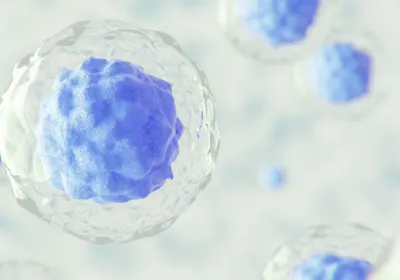ABOVE: © ISTOCK.COM, MOTORTION
Patients with hematologic cancers such as leukemia who are hospitalized with COVID-19 are more likely to die than are those with solid cancers who contract the infection and go to the hospital, according to an analysis posted as a preprint to In Review on February 2. The researchers suggest that compromised immune responses could lead to these poor outcomes in blood cancer patients with acute COVID-19, as they found that a depletion of CD8+ T cells was associated with the highest mortality among all the participants.
“If you think about it, it makes sense. Patients with leukemia by definition have a cancer of the immune system,” says Mikkael Sekeres, the chief of hematology at the University of Miami’s Sylvester Cancer Center who was not involved in the study. Corrupted bone marrow produces abnormal white blood cells, which is why people with leukemia are more susceptible to ...






















